President Trump’s Justice Department has alerted the Supreme Court that it would, as expected, switch sides and back Tennessee in the high-stakes challenge, brought by the Biden Administration, to the Volunteer State’s ban on gender-transition treatments for minors. Nevertheless, the Justice Department has also decided not to withdraw President Biden’s original complaint, filed last year.
The Trump Administration may have decided to tolerate this contradiction because it expects, as do many legal observers, that the court will uphold the Tennessee law; a ruling is expected in June. This would be a major victory for Republicans’ years-long effort to prevent minors from accessing gender-transition drugs.
The landmark case, the stakes of which have only ratcheted up since the Trump administration sought to restrict young people’s access to these medical interventions nationwide through an executive order, will consequently proceed as originally planned.
This move—or lack thereof—on the Justice Department’s part resolves an open question that, since President Donald Trump’s victory in November, hung over this case. The justices heard oral arguments on December 4. Questions asked by the justices during the hearing strongly suggested that the court, with its 6-3 conservative majority, will uphold the Tennessee law.
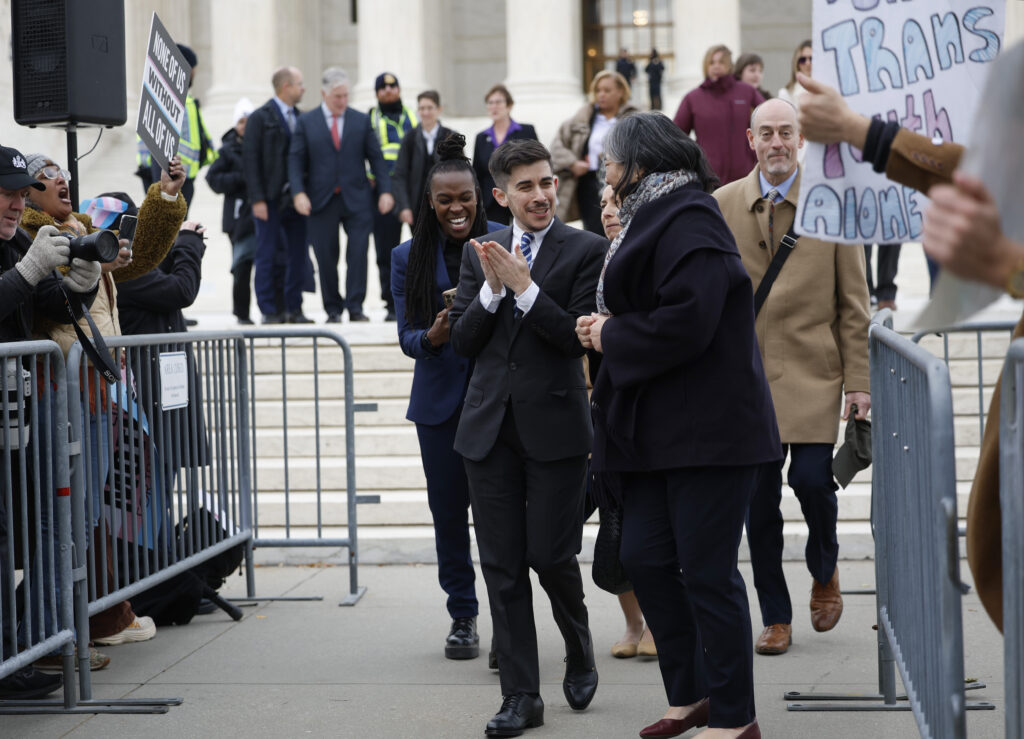
The Supreme Court in June 2024 had accepted the Biden Justice Department’s complaint, which argued that Tennessee’s law—passed in 2023 and called SB1—barring these medical interventions for minors was a violation of the Constitution’s equal protection clause.
Court watchers have speculated whether a switch of presidential administrations midway through the Supreme Court’s term might see the Trump Justice Department withdraw the complaint entirely.
Not so, it turns out. The Trump Administration, despite issuing a fusillade of executive orders that have sought to reject transgender identity in medicine, schools, the military, legal documentation and sports, has made clear that it is, in fact, eager for the court to issue a decision in the Tennessee case forthwith.
In a statement, Tennessee attorney general Jonathan Skrmetti, the named defendant in the case, known as U.S. v Skrmetti, commended President Trump for joining his side. Echoing the contents of the letter that Deputy Solicitor general Curtis E. Gannon sent to the Supreme Court’s clerk on Friday, Mr. Skrmetti said, “there remains a live controversy between the private plaintiffs and Tennessee that, consistent with the Supreme Court’s prior practices and the Constitution, can and should be resolved.”

Indeed, Mr. Gannon stated in his letter that the Justice Department sees an advantage in the Supreme Court providing direction to the many cases now making their way through lower courts regarding other state bans. Twenty-six states have passed laws restricting access to gender-transition medications, surgeries or both.
Gillian Branstetter, a spokeswoman for the ACLU, provided the Sun a joint statement from the organization and its Tennessee affiliate, as well as from Lambda Legal – an LGBTQ legal rights legal group – and the white-shoe law firm Akin Gump. The team represents the plaintiffs in the case, three families of transgender teens and a doctor.
“Tennessee’s discriminatory and baseless ban continues to upend the lives of our plaintiffs – transgender adolescents, their families, and a medical provider,” the statement read.
The Trump Justice Department’s decision, the statement continued, “is another indication that they are using the power of the federal government to target marginalized groups for further discrimination. We condemn this latest move and will continue to fight to vindicate the constitutional rights of all LGBTQ people.”
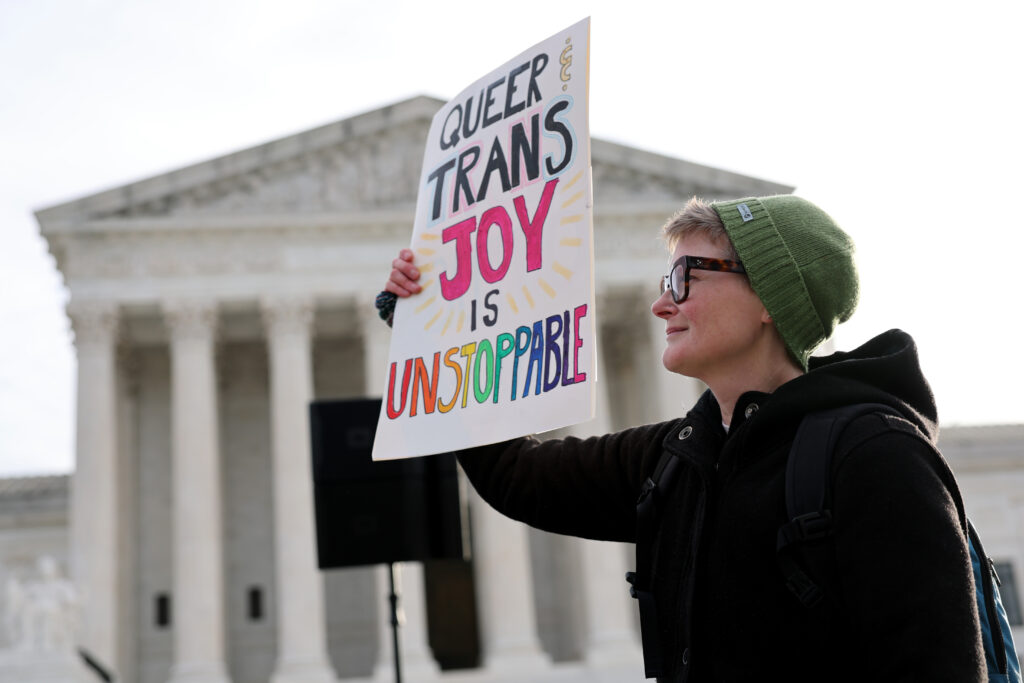
Josh Blackman, a professor of constitutional law at South Texas College of Law Houston, characterized the Justice Department’s move as “inescapable,” given Trump’s recent executive order seeking to clamp down on this besieged branch of pediatrics.
“I think the government was right to ask the Court to keep the case on the docket,” Mr. Blackman said. “The ACLU argued the issue, and everything was fully briefed. Nothing stops the Court from going ahead and deciding the matter.”
Since 2021, Republicans in 24 states have passed bans on providing puberty blockers, cross-sex hormones and gender-transition surgeries to minors diagnosed with gender dysphoria—which is distress stemming from a mismatch between a person’s sex and gender identity. Two additional states only ban the surgeries.
Alaska and Kansas are the two remaining states with Republican-dominated legislatures that lack such bans. Kansas Governor Laura Kelly, a Democrat, has for two years running vetoed bans passed by the state’s Republican legislature. But the Kansas legislature last week passed yet another ban, potentially with enough support to override a veto.
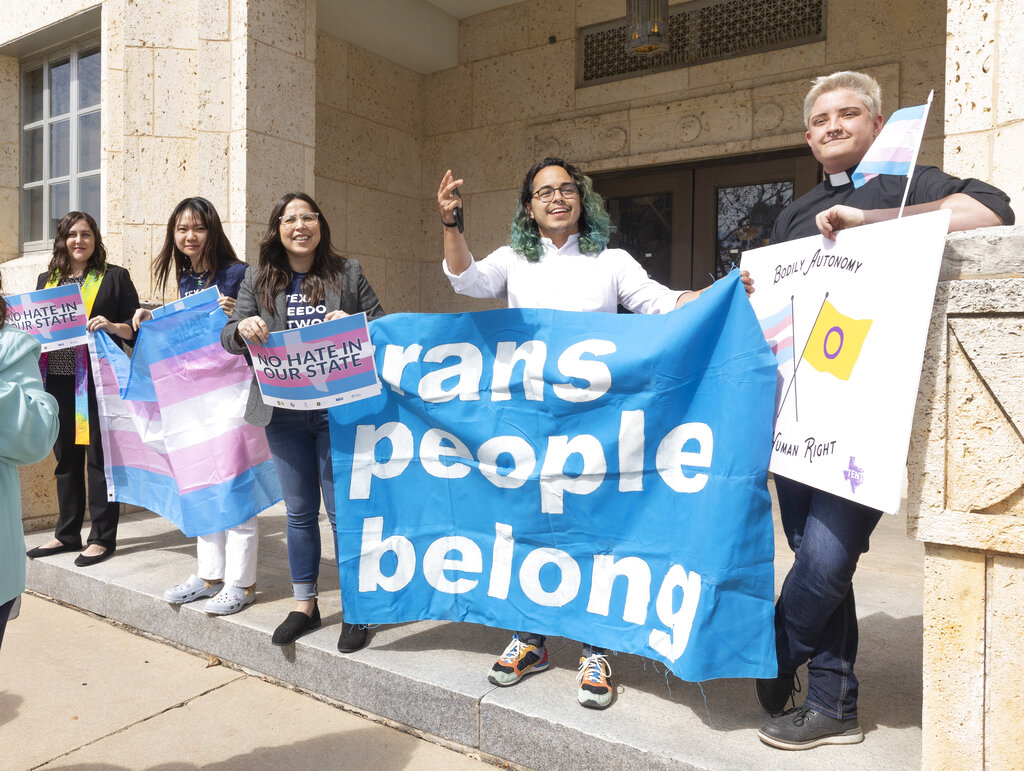
Supporters of these treatments, which includes the lion’s share of major U.S. medical societies, argue that they are safe and effective and help mitigate mental health problems and suicidality in young people.
However, an increasing number of national health authorities in Europe have moved to sharply restrict access and reclassify these treatments as experimental where minors are concerned.
These turnabouts have been in response to a litany of systematic literature reviews—the gold standard of scientific evidence—that have all found the evidence supporting the use of these medical interventions is weak and uncertain. The first such review to pool study outcomes to conduct a meta-analysis was published last month; it brought more of the same conclusions.
Advocates of such medical interventions often counter that the overall field of pediatrics is routinely guided by low-certainty scientific evidence and argue that gender medicine is being unfairly exceptionalized.
“Don’t Get Into The Weeds On Medical Care.”
Advocates making the argument that low-certainty evidence in pediatrics is unexceptional include representatives from the LGBTQ groups GLAD Law, Movement Advancement Project (MAP), the National Center for Lesbian Rights, and the Whitman-Walker Institute. On January 29, MAP’s executive director, Naomi G. Goldberg, distributed a three-page list of talking points drafted by these groups that were meant for advocates of pediatric medicine to follow as they sought to combat the existential threat to pediatric gender medicine brought by the Trump Administration.
The talking-points document, which the Sun obtained, called upon like-minded advocates to focus on painting the president’s efforts as what it characterized as “government overreach at its worst.” Conversely, the document discouraged taking “opponents’ bait around the research studies they’re attacking.”

“Don’t get into the weeds on medical care,” the document cautioned.
Kellan Baker, executive director of The Institute for Health Research & Policy at the Whitman-Walker Institute, is listed as the primary contact on the document. He and Ms. Goldberg did not return a request for comment.
Dr. Baker was a member of the team at the World Professional Association for Transgender Health, the influential U.S.-based activist-medical organization that commissioned a lengthy roster of systematic reviews about transgender care from evidence-based medicine experts at Johns Hopkins University. According to internal WPATH communications that were subpoenaed in the federal case over Alabama’s ban of gender-transition treatment for minors, WPATH suppressed many of these reviews when the findings were not to their liking. They ultimately only permitted the publication of two of them.
Dr. Baker was the lead author on one of those reviews. It looked at studies of treatment with cross-sex hormone treatment among both adolescents and adults and found it was associated with various psychological benefits. But similar to all other such reviews about pediatric gender medicine in particular, the review found that the certainty of such conclusions was “limited by high risk of bias in study designs, small sample sizes and confounding with other interventions.”
In the talking-points document, Dr. Baker and his colleagues assert: “The evidence around the safety and effectiveness of healthcare for transgender people of all ages is as strong as the evidence for treatments across other areas of medicine.”

Moti Gorin is a bioethicist and a professor of philosophy Colorado State university who is a skeptic of pediatric gender-transition treatment. In an interview, he said that based on the currently available evidence, he believes these interventions represent an unfavorable balance of risk versus benefits. He criticized as vague and overly broad the talking-point list’s effort to compare such treatments across other medical disciplines.
Dr. Gorin said that to make a fair comparison across pediatrics in particular would demand “comparable cases with similar risk-benefit profiles, where the interventions were nevertheless routinely administered.”
In addition to causing irreversible physical changes, prescribing cross-sex hormones to minors can pose a risk of infertility and sexual dysfunction, especially among natal males who begin taking puberty blockers early in adolescence.
Dr. Baker and his colleagues’ talking points, Dr. Gorin noted, also made a number of false or misleading claims, including asserting that all leading U.S. medical associations endorse gender-transition treatment for minors (the American Society of Plastic Surgeons notably does not); and that minors are invariably subjected to “extensive evaluation” before being prescribed these medications.
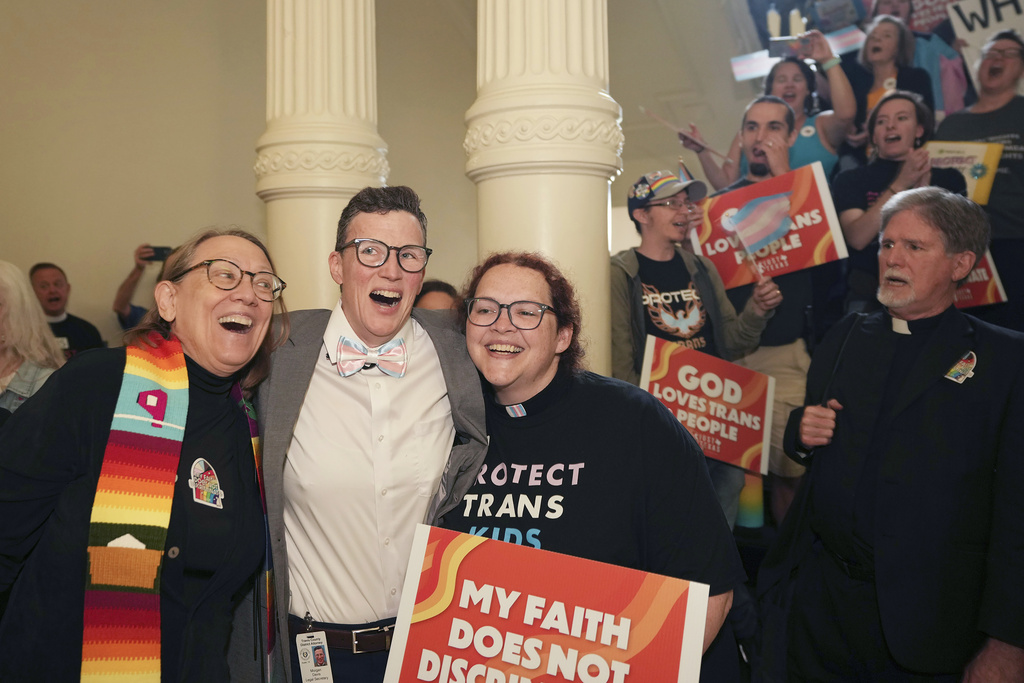
As the Sun previously reported, since 2018, it has been the policy of Boston Children’s Hospital only to provide children and their parents a single, two-hour assessment appointment with a psychologist before deciding whether to refer the child to endocrinology for puberty blockers or hormones.
A 2022 Reuters investigation identified seven pediatric gender clinics that said they would prescribe such drugs to minors on the first appointment if they saw no “red flags.”
And in December, Dr. Johanna Olson-Kennedy, one of the top pediatric gender doctors in the nation and a lead investigator on a $10 million National Institutes of Health grant to research these interventions, was sued by a former patient to whom she allegedly prescribed puberty blockers on the first appointment without providing the patient, who was 12 years old, with a psychosocial evaluation, as advised by WPATH’s trans-care guidelines.
Dr. Olson-Kennedy is the president of WPATH’s U.S. branch, USPATH. But she has spoken out against the WPATH guidelines’ demand for conducting detailed assessments before putting children on gender-transition drugs. So has Dr. Jack Turban, a child and adolescent psychiatrist at the University of California, San Francisco and vocal advocate of pediatric gender medicine.
The Justice Department Decides
If the Supreme Court upholds the Tennessee ban on pediatric gender-transition treatment, this will likely entrench the bans that have been passed in 23 other states; currently, some are held up by injunctions. But legal experts told the Sun that there might still be room for litigators to attack such bans on due process grounds, by arguing that state governments are subverting the rights of parents and guardians to make medical decisions on behalf of their children.
The ACLU filed the initial complaint against the Tennessee law and marshalled it to the 6th District Court of Appeals. That court upheld the law, finding that it neither violated the equal protection clause nor infringed upon due-process rights. The ACLU then filed a complaint with the Supreme Court regarding both those points. But the court only accepted the Biden Justice Department’s separate, more narrow complaint that just focused on the equal protection question. Nevertheless, the ACLU was permitted to share the time allotted for oral arguments with Mr. Biden’s solicitor general.

In his letter to the Supreme Court on Friday, Deputy Solicitor General Gannon wrote that the Trump Justice Department had determined that the Tennessee law “does not deny equal protection on account of sex or any other characteristic.”
“Accordingly,” the letter continued, “the new Administration would not have intervened to challenge SB1—let alone sought this Court’s review of the court of appeal’s decision reversing the preliminary injunction against SB1.”
Crucially, the letter asserted that despite the Justice Department switching sides, the dispute over the constitutionality of the law in question “has not become moot.”
“The Department of Justice did exactly the right thing,” said Ed Whelan, a senior fellow at The Federalist Society. “It repudiated the Biden administration’s unsound position in the case, and it also advised the Court that it can and should decide the case.”
The case has drawn intense interest from both sides of this combustible debate, with scores of friend-of-the-court briefs flooding the court last summer and fall.
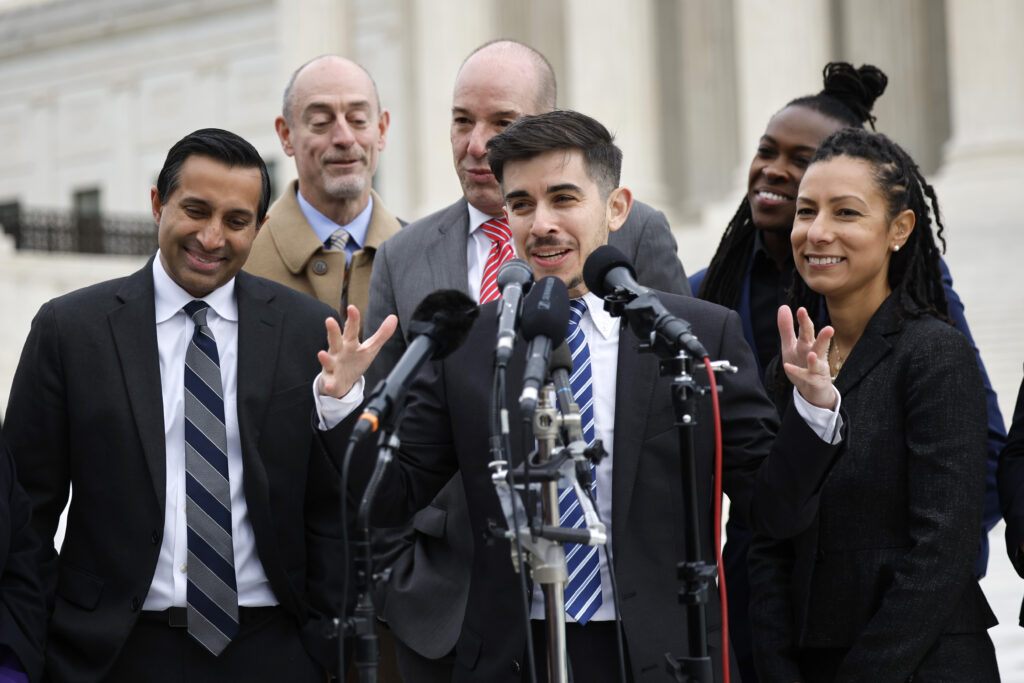
Since President Trump’s inauguration, the implications of the ultimate decision from the Supreme Court have only become more critical. On Jan. 28, the president issued an executive order that threatened to bar federal funding to medical institutions that provide gender-transition medications or surgeries to those under age 19.
The order has unleashed chaos in pediatric gender clinics nationwide and fear and confusion among families with children receiving or seeking such interventions.
According to a roster kept by the nonprofit Do No Harm, which opposes pediatric gender medicine, a dozen major hospitals, including Boston Children’s and Seattle Children’s Hospital, have announced they are at least “pausing” some or all of these medical practices.
On Friday, the Democratic attorneys general of Washington, Minnesota and Oregon filed suit against the Trump administration in the Western District of Washington, seeking to block the executive order regarding gender-transition treatment for minors.
How Common Are These Treatments?
The question of how many children have received these medical interventions remains hazy—and hotly disputed. Answering the question is made difficult by the nation’s fractured health care system and lack of centralized health records.
A study published in JAMA Pediatrics in January found that between 2018 and 2022, about 1 in 1,000 youths with private health insurance were receiving cross-sex hormones by the time they hit 17 years old. Given that other analyses have found that the rate of such prescriptions increased dramatically during this period, it is likely that the figure was higher in 2022, in particular for natal girls, or people born female, identifying as male.
In an analysis that has not been peer reviewed, Do No Harm examined insurance claims data and conservatively estimated that between 2019 and 2023, at least 14,000 minors received gender-transition medications, surgeries or both. Health care practices have billed some $120 million for these interventions; although it is unclear to what degree that figure was actually reimbursed.
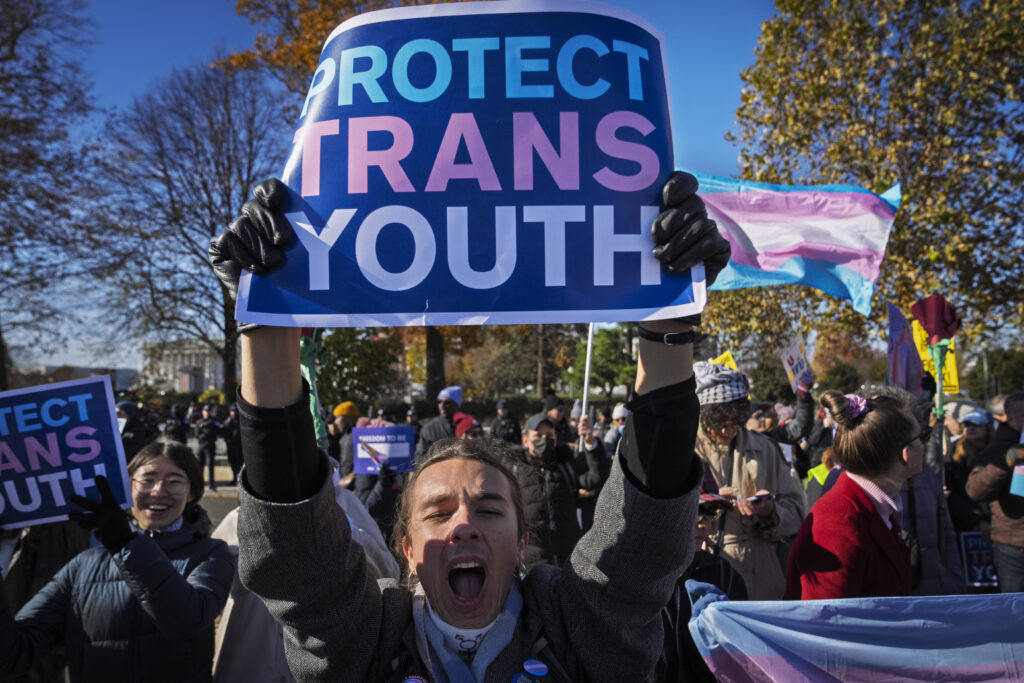
In another non-peer-reviewed analysis, which similarly looked at insurance-claims data, Leor Sapir, a fellow at the Manhattan Institute, found that between 2017 and 2023, about 5,300 to 6,300 natal girls received gender-transition double mastectomies. The trend line generally increased during this five-year period.
Recently, mainstream journalists have routinely cited a research letter out of Harvard, published in June 2024 in JAMA Network Open, that has led them to falsely report that these mastectomies are very rare. Part of the reason for such misrepresentation of the facts is that the research letter misleadingly compared gender-transition-related breast reductions (rather than mastectomies) to gynecomastia surgeries in boys – a surgery to reduce breast tissue build-up – to assert that the latter are much more common. But in pediatric gender medicine, the vast majority of gender-transition surgeries are mastectomies.
What’s more, the Harvard study relied on a relatively limited insurance-claims database when it reported that only 82 minors received such surgeries in 2019. Dr. Sapir’s data indicates that the true figure was likely at least 10 times that.
A 2023 paper, also published in JAMA Network Open, reported rates of such surgeries among those ages 12 to 18. The figures were similar to what Dr. Sapir found.





